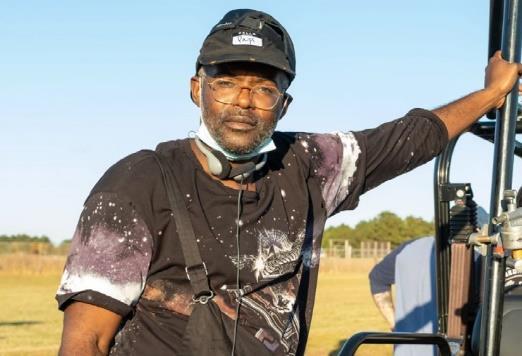MONEY in FILM




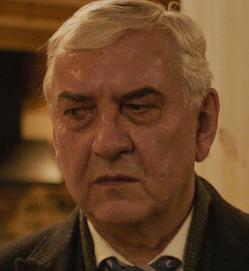


BIRD ATLAS










VERDICT: Birds of a feather do not flock together in this tragicomic Czech farce.


Stephen Dalton, September 1, 2021
A lightly philosophical flight of fancy dressed up like a deadpan stage farce, Bird Atlas is the third feature from Slovenia-born, Prague-based director Olmo Omerzu. On the surface, the narrative concerns the Lear-like struggles of a gruff CEO to hold his crumbling family business together. But thanks to its gentle patina of magical realism, notably a background chorus of talking birds who comment on the unfolding action, this low-key charmer is also a comic parable about lives ruined and families divided by too much focus on money: the price of everything and the value of nothing.
Omerzu’s previous feature was the 2018 coming-of-age road movie Winter Flies, which won him the best director prize at Karlovy Vary festival, Full Review
“All the things I could do…if I had a little money,” sang Abba. That line is from a song of the 1970s, but the Swedish group could have offered the same dreamy sentiment just yesterday and we’d be nodding along. It may explain why the subject of money, explicitly or opaquely, has long been a preoccupation of cinema. Godard—or, depending on your source, Griffith famously said that filmgoers want to see a girl and a gun. But one, or maybe both, of those ingredients requires money. And, if Forbes is to be believed, one way to make a lot of it is through the business of technology, which is where the film Bird Atlas comes in.
The cantankerous head of a tech firm struggles to cede control of his company to his kids and the story takes off from there. Like the hit series Succession, Bird Atlas, as directed by Czech filmmaker Olmo Omerzu, shows that all too often funds and family make uneasy bedfellows. Omerzu adeptly introduces a couple of birds who function as a chorus. “The pleasures of the mighty are built on the tears of the poor,” one bird says, via subtitles.
In some ways, that argument is upheld by Juichiro Yamasaki’s Yamabuki, a film that our critic says could be interpreted as “a subtle snapshot of simple workingclass lives”. (Continues page 2)

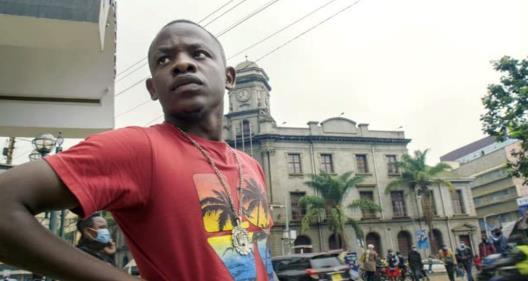
The titular character, a student, is shaken out of her life of torpor when she joins street protests. But the film’s real focus is the way rural Japan is changing. As young people leave, the milieu falls into a decline that Yamasaki seems eager to document.
On the other side of the ongoing story of global inequality are the tourists in Brandon Cronenberg’s sci-fi horror Infinity Pool. When the viewer first meets protagonist James Foster (played superbly by Alexander Skarsgård), he’s an author enjoying a vacation in the fictional country of Li Tolqa. But maybe he isn’t really enjoying it, because he’s one of those writers who have been unable to write anything in quite some time. He may be bored, but it’s a desperate kind of ennui.
Well, until he meets the alluring Gabi, who seems incredibly into this writer and his work. She convinces him to hang out and his life becomes unimaginably exciting. The excitement comes down principally to what the western tourist can afford in a
place where the dollar goes far so far, in fact, that it can make a sport out of borderline criminal activities. In the U.S., these tourists would never get away with the rather shocking things they do. But in this small country, the dollar is its own government. Cronenberg is making a point about the pastimes of the wealthy, but his route is a crazily lurid one. On the subject of the bad behaviour of the West in other climes, the documentary Money, Freedom, a Story of CFA Franc is unmissable. Lena Ndiaye’s film traces the history of the currency used by a group of Frenchspeaking countries in Africa. As expected, the unfortunate story is linked to French colonialism and the independence of African countries that, with the benefit of hindsight, is merely colonialism by other means. While the film offers a compressed history of economics, power, and finance, you don’t need a master’s degree to understand Ndiaye’s overarching point: whoever controls your money is your ruler. There is a different kind of financial relationship between the West and Africa in Lauren DeFilippo and Sam Soko’s Free Money, but the dynamics are similar in at least one way. The haves are from the West; the have-notes are African. This time, the idea is somewhat benign. An
(Continues page 3)
VERDICT: Brandon
Cronenberg's darkly satirical sci-fi horror thriller about sun-seeking tourists on a clone-killing crime spree is a deliriously debauched joyride into Hell.

Stephen Dalton, February 21, 2023
The latest sci-fi horror fable from Canadian writer-director Brandon Cronenberg is his most deliciously dark, richly allegorical nightmare vision to date. A bleakly satirical, sexually graphic, hallucinatory thriller about wealthy tourists resorting to debauched savagery in a fictional foreign country, Infinity Pool proved divisive at its Sundance premiere last month, earning rave reviews for its stylish excess but also criticism for its loathsome characters, lurid plot and fetishistic violence. To fans of vintage cult cinema, of course, these are all plus points. Cronenberg’s third feature makes its European debut in Berlin this week ahead of wider international release in March and April.
Mostly filmed on the picturesque coast of Croatia, Infinity Pool takes place in a luxury resort Full Review

Ivy League graduate comes up with the idea of giving money to the rural areas of East Africa. It is not exactly a bad idea, but the process and results are fraught with challenges. One onscreen subject is uncomfortable with the idea of a Westerner playing god but the recipients have more practical worries: what to do with the money.
In Moneyboys, the lead character’s worry is more sentimental than strictly financial.
Fei (Kai Ko) is a gay prostitute in China who leads a super-attractive lifestyle on his earnings from his customers. But after a violent disagreement, his life is upturned. A few years later, he heads back home to his family in the village. But home is hardly what he expects it to be. Our critic wasn’t too pleased by some elements of the gay life as presented by director C.B. Yi but the central performance “gives the film its heart”. Moneyboys takes an interesting route to a world in which migration, either within a country or to a foreign country, is motivated by the need to earn an amount of money not otherwise feasible.
But how effective are moneycentred narratives without financial loss? This other side of a


brutally capitalist world is presented in the aptly named BlackBerry, a title that arouses nostalgia and some foreboding. As our critic says, “this is not a story that has a happy ending”. Director Matt Johnson describes how the phone that took over the world came to be, deploying humour that doesn’t always work. Nonetheless, the actors have a certain chemistry and the story is, well, about a technology company, which means that BlackBerry is a story about huge sums of money and the modern world.
In that song from the 70s, Abba said, it’s “always sunny in the rich man’s world”. That is very true, except when there’s an unhappy ending.
– Oris Aigbokhaevbolo
VERDICT: Focusing on the plight of both workingclass locals and migrant labourers in a small town, Juichiro Yamasaki’s third feature powerfully chronicles the greying fortunes of Japan’s depopulated provinces.

Clarence Tsui, January 31, 2022
The title of Juichiro Yamasaki’s latest feature is at once the name of its teenage protagonist and an unassuming Japanese flower which grows best in the shade, as well as a word that was once traditional slang for gold coins. This multiplicity of meanings fits Yamabuki well, as the film could be interpreted as

a schoolgirl’s rite of passage into adulthood, a subtle snapshot of simple working-class lives, and also a gritty portrayal of the effect of depopulation on Japan’s rural hinterlands.
The latest entry in Osaka-born Yamasaki’s decadelong exploration of the past and present of Maniwa, a small town in western Japan where the filmmaker has lived and run a small tomato farm for 15 years, Yamabuki is a humane and heartfelt ode to a community struggling to get its bearings in one of the many forsaken corners of a theoretically prosperous country.
Devoid of any overt drama – its most dramatic scene features a valise of cash falling in slow-motion off a quarry face – Yamasaki’s film will reward patient viewers with a glimpse into Japanese life away from the dominant narrative perpetuated by both mainstream directors and arthouse cineastes. It is entirely shot on 16mm stock and its gritty portrayal of down-and-outers on the margins of Japanese society mirrors that of the equally grainy The Kamagasaki Cauldron War by first-time filmmaker Leo Sato, which like this film was produced by Terutarô Osanaï. Full Review
VERDICT: Lena Ndiaye's documentary may be the most important contemporary document on Francophone Africa's malignant economic relations with France.
Oris Aigbokhaevbolo, November 16, 2022
In one of the early scenes of Money, Freedom, a Story of CFA Franc, a speaker says that the financial system has been made difficult to understand but yet has a power so extensive it is kind of supernatural. It’s hard if not impossible to disagree with that assertion. And yet, from time to time, something happens to give non-initiates a peek behind the curtain.
For anyone interested in the relationship between France and some of its former colonies, Lena Ndiaye’s documentary is a must-screen. After its bow at IDFA, it should have no problems finding other festivals across Europe. TV networks might also want to look into acquiring a documentary that rewards multiple viewings, packed as it is with in-depth research into that most important entity, money. It should probably come as no surprise that money in countries formerly under the control of colonial powers is linked to those old empires. But whereas some have broken those chains, others, for some reason, have not. To get us through why this has been harmful for those countries yet to be weaned, Ndiaye assembles several experts in economic matters. Their eloquence and insights into the issue is enough to get A Story of CFA into classrooms. What makes it earn a place outside of classrooms is its layered storytelling. And there is footage of the Indochina War, of French leaders wheedling, of nowold or deceased African leaders glossy in their youth. Ndiaye also infuses the film with some biography, thereby connecting the larger world to the intimacy of family. Full Review
VERDICT: A high-end gay sex worker in China longs for the family affection he felt as a child in C.B. Yi’s beautifully crafted if not always satisfying debut that showcases the talents of actor Kai Ko. Jay Weissberg, November 19, 2021
Debuting director C.B. Yi takes more visual than narrative cues from Hou Hsiao-hsien with Moneyboys, an eye-catching story of a gay sex worker in China whose yearning for the simple comforts of his village and family clash with his profession and the chic urban life he leads. Shot

entirely in Taiwan due to obvious censorship issues in the PRC, the film convincingly contrasts the transient ties of generically hip globalized city culture with traditional rural values without demonizing or over-praising either one. Problems however arise from the stereotyped depiction of gay
escort life, whose candy-coated rewards – fab clothes, terrific apartments – have almost zero downsides apart from occasional police problems and the family shame. The attractive cast, shown to great advantage by Jean-Louis Vialard’s handsome, color-focused cinematography, help sell the film, but the visual charms together with a moving sense of melancholy can’t entirely disguise certain gaps. Moneyboys premiered in Cannes’ Un Certain Regard and has so far avoided the gay fest ghetto, though distribution will likely be limited to cinemas reliant on the pink euro/dollar/pound.
Fei (Kai Ko) is young, lithe and innocent looking, an ideal combination for a rent boy. Using the name Jackson, he turns tricks under the guidance of the guy he loves, Xiaolai (JC Lin), accommodating well-off clients whose generosity pays for expensive shirts and an enjoyably hedonistic life even if the johns aren’t exactly Adonises.
Full Review

TFV’S Matt Micucci shares conversations with filmmakers who premiered new films about human connection from different parts of the world at the 2023 Berlin International Film Festival. This episode of the SHOWCAST features a conversation with Romanian filmmaker Vlad Petry, whose Between Revolutions tells the story of the friendship between two women who meet in the 1970s in Bucharest but who are separated by the political turmoil of their respective countries of Romania and Iran.
It also includes a conversation with Nigerian filmmaker Babatunde Apalowo, who premiered All the Colours of the World are between Black and White. The film offers a compassionate depiction of the experiences of the queer community in Nigeria and made history by becoming only the second ever Nigerian feature length film to have officially premiered at the Berlinale.

Kino Lorber acquires rights to Golden Bear Winner On the Adamant
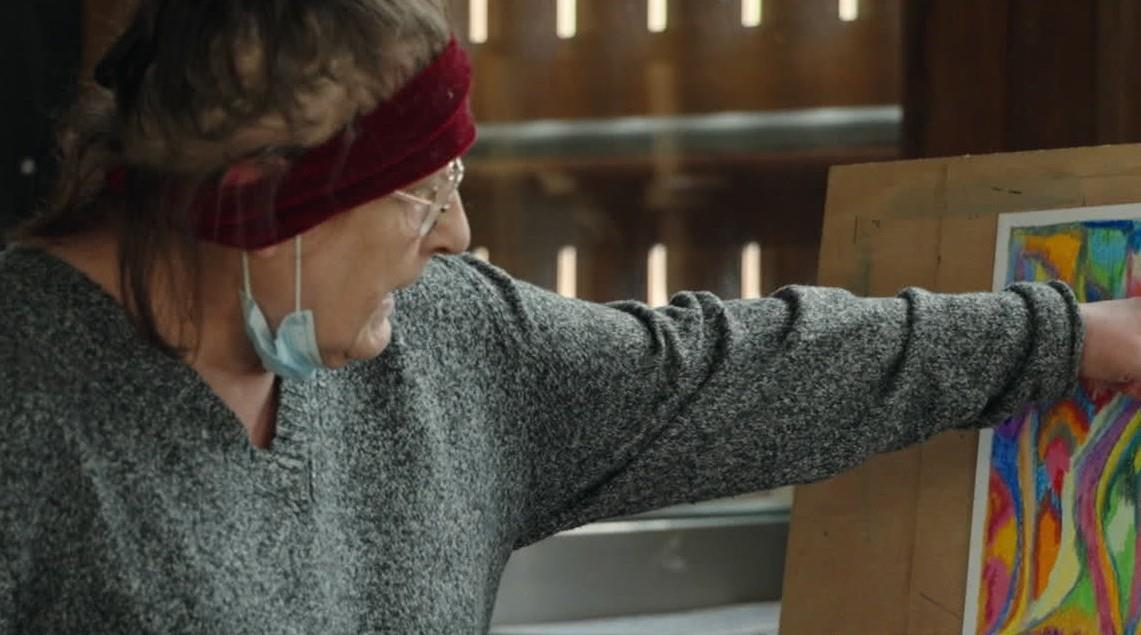
Norwegian film War Sailor to Stream on Netflix as Limited Series

Idris
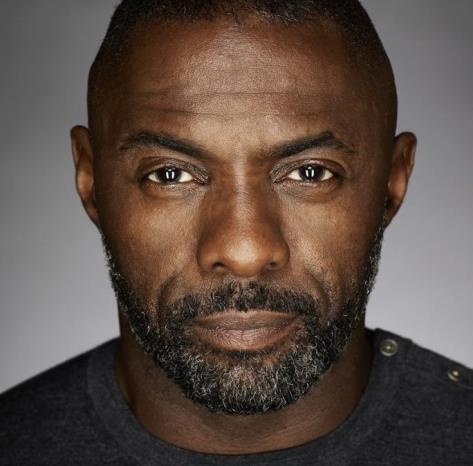
Mo Abudu Join Forces

Tull StoriesAcquires BIFAAward Winning Our River...Our Sky
Tull Stories
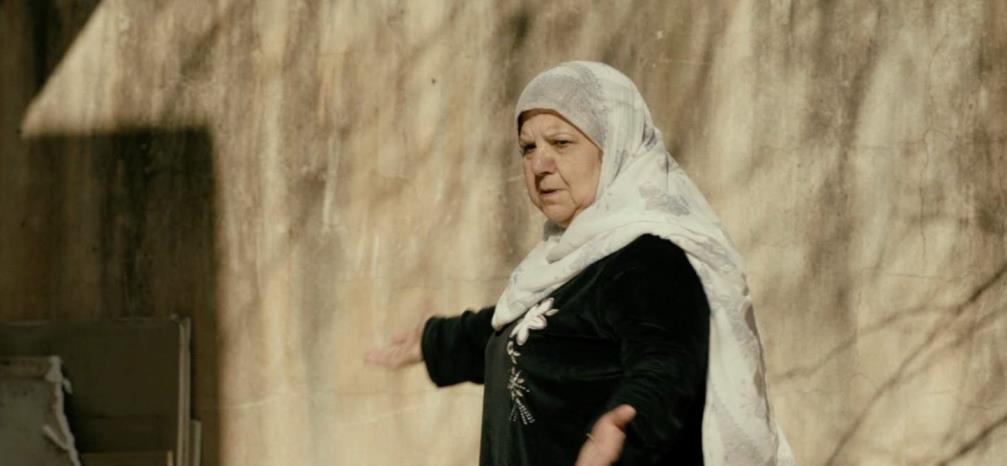
VERDICT: Lauren DeFilippo and Sam Soko examine a newfangled Western method of aid to Africa and return with predictable answers in this largely agreeable fare.
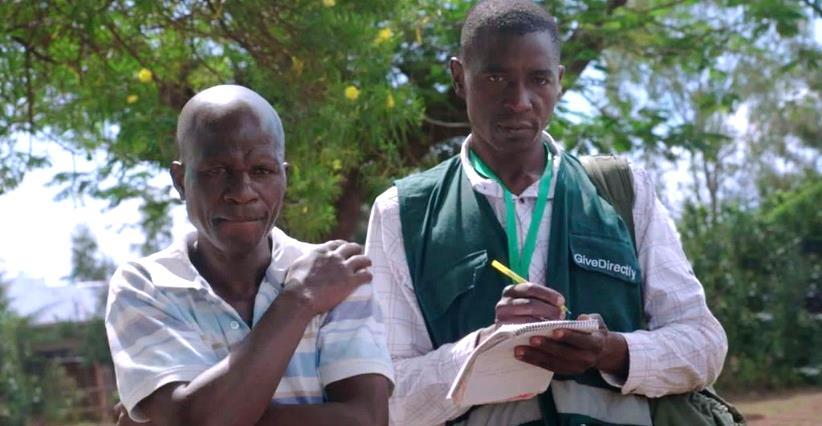
Oris Aigbokhaevbolo, November 14, 2022

Free Money. Who doesn’t want it? The tricky part is finding someone who is willing to give it away. Fortunately, a non-profit organisation called GiveDirectly decided to do so. The company probably has reams of paper to back its action. But it is a simple idea, really: rather than the roundabout manner NGOs undertake to enable economic prosperity, why not be direct? Why not put the cash in the hands of the people who need it? Cut out the middleman and have each adult handle their own lives. Pretty simple.
But as Lauren DeFilippo and Sam Soko’s documentary shows, the idea may be simple but the troubles start from the very idea of receiving free money. As with all projects concerned with African poverty, Free Money will find its place across Western festivals and platforms seeking to either understand the nature of African poverty or feel good about the West’s relatively elevated position in global economics.
As said, the problems GiveDirectly encounters begin with the idea. In the areas targeted, questions arise from potential beneficiaries: Why should they accept the money? At a meeting to discuss the coming windfall, someone says he has heard that you have to give your firstborn as a sacrifice when you receive the money. Someone else says the money is probably from the Illuminati. There’s enough weirdness around the concept of free money that one of the more reasonable queries is a simple one: what do the beneficiaries have to do to get this free money?
The explanation given concerns Google and Facebook making money whenever you go on their websites and then deciding to give some of it back.
Full Review
VERDICT: The backstory to the creation of the world’s once-most-popular smartphone is much wackier than can be imagined, as evidenced in Matt Johnson’s good-humored rise-and-fall business chronicle.

Deborah Young, February 17, 2023
Painting a rollicking picture of the nerdy techies (later defined as “Canada’s best technical engineers”) who invent the BlackBerry between raucous Movie Night sessions, and then make a pact with the devil to market it, Canadian filmmaker and actor Matt Johnson (Operation Avalanche) surprises and amuses for much of BlackBerry’s two-hour runtime, though there are speed bumps along the way. Still, this feels like a film that adds insight into the messy creative process that lies behind the glossy marketing patter of our modern tele-toys. At its most manic and absurdist, it’s plain good fun of a kind one doesn’t expect to find in Berlin competition.
Surprisingly sharp-tongued and even derisive at times, BlackBerry bills itself as a fictionalized account inspired by real people and events, and there’s a certain thrill in seeing famous companies and their CEOs taken to task onscreen, from Verizon to AT&T, U.S. Robotics to Bell Atlantic, Apple and Google to the National Hockey League. Certainly the methods of business are rarely tender (see the dark glee of a Palm Pilot topper when he threatens our heroes with a hostile takeover) and, going beyond comedy, screenplay writers Johnson and Matthew Miller astutely tease out the dramatic conflict inherent in taking a historic invention to market.
Back to the present: just before the Berlinale and European Film Market began, Canadian sales company XYZ Films sold the comedy to Paramount Global Content Distribution for worldwide release, while IFC Films will release in the U.S. It’s a success story that in many ways seems to mirror that of the brilliant Mike Lazaridis Full Review



